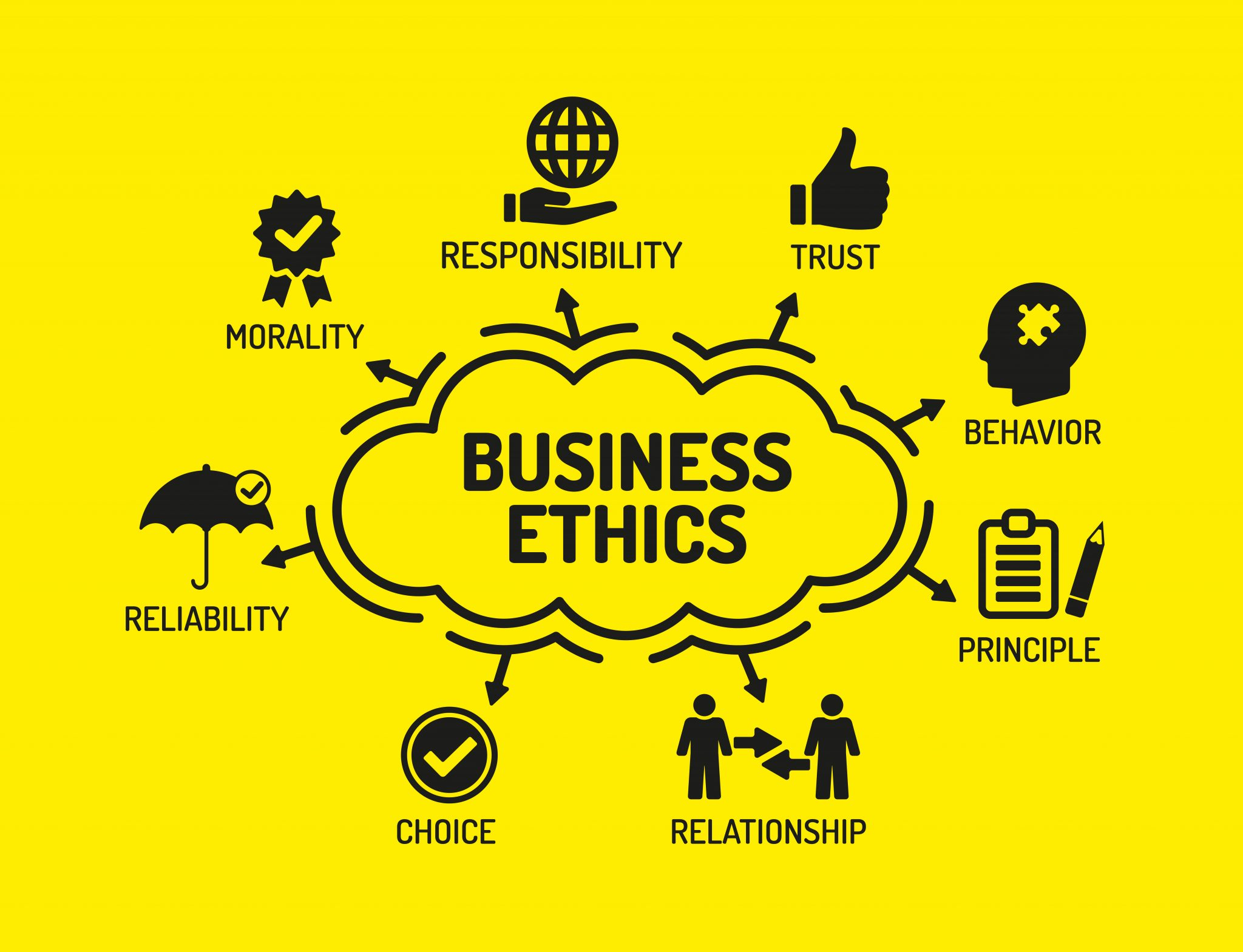Business ethics play a crucial role in guiding organizations through the often murky waters of ethical decision-making. As the dominance of corporate responsibility increases, it becomes imperative for business leaders to navigate complex decision-making scenarios that encompass various stakeholders’ interests. Faced with gray areas in ethics, executives must rely on sound frameworks and principles to make responsible choices that uphold both legal and moral standards. In today’s rapidly evolving marketplace, the challenge of maintaining ethical practices is more significant than ever, underscoring the importance of developing robust systems that foster integrity. Ultimately, the commitment to business ethics lays the foundation for sustainable growth and trust within the corporate ecosystem.
The principles surrounding ethical practices in commerce have emerged as a foundational pillar for modern organizations. Often referred to as corporate integrity or moral business conduct, these concepts focus on the responsibility of leaders to ensure that decisions made reflect not only profit motives but also a genuine commitment to societal well-being. As firms navigate the intricacies of ethical dilemmas and conflicting obligations, the necessity for sound judgment is clear. With the rise of technology and globalization, decision-makers face more multifaceted challenges than ever, which demand a nuanced understanding of what constitutes ethical behavior. As businesses increasingly confront ambiguous situations, the conversation around corporate ethics and accountability becomes indispensable.
Understanding Business Ethics Today
Business ethics today encompass a broader range of considerations than they did three decades ago. Rather than simply applying moral philosophy to business scenarios, ethics now demand a nuanced understanding of diverse stakeholders and international contexts. Executives must navigate complex landscapes where legal frameworks overlap significantly with ethical dilemmas. As technology advances, especially with innovations like AI and robotics, leaders are pushed to consider the ethical implications of their decisions not only for their business but also for society at large.
Furthermore, the evolution of business ethics reflects a shift from a shareholder-centric model to one that prioritizes the interests of multiple stakeholders. This transition requires a more complex analysis of corporate responsibility, as businesses are increasingly held accountable for their societal impacts, such as environmental sustainability and fair labor practices. In this environment, effective business leadership must integrate ethical decision-making into everyday operations, addressing gray areas where ethical and legal boundaries may blur.
The Challenges of Ethical Decision-Making
Ethical decision-making in business is fraught with challenges, particularly as leaders confront gray areas that lack clear right or wrong answers. Current business leaders face a climate characterized by raised expectations and greater scrutiny from customers, regulatory bodies, and the public. As outlined by Joseph Badaracco, the accountability of executives extends beyond simple legal obligations; they must also weigh various competing interests and ethical considerations in their decision-making processes. This complexity can lead to higher stakes and more significant risks when navigating dilemmas.
Moreover, ethical decisions are often influenced by cognitive biases that cloud judgment. Leaders may encounter situations where their rationalizations shift an illegal action into a perceived gray area, blurring the lines of ethics. To counter these biases, it is crucial for business decision-makers to solicit diverse perspectives and engage in thorough analyses of the implications of their choices. This collaborative approach can help ensure that decision-making aligns with both ethical standards and corporate responsibility.
Navigating Gray Areas in Business Ethics
Navigating gray areas in business ethics requires a delicate balance of judgment and responsibility. These situations often highlight conflicts between ethical obligations and practical realities, such as when an obligation to stakeholders may conflict with legal mandates. Leaders must develop a keen sense of the nuances involved in these complexities while maintaining clarity about their central responsibilities. This kind of nuanced understanding is crucial for making sound judgments in situations where the right course of action isn’t immediately clear.
Additionally, leaders can enhance their decision-making strategies by employing systematic reflection practices. Reflection helps to clarify key priorities and responsibilities when facing difficult decisions. Techniques such as discussing dilemmas with trusted colleagues or utilizing quiet contemplation can lead to more thoughtful insights into ethical complexities. By fostering an environment that emphasizes reflection and ethical dialogue, organizations can better equip leaders to handle gray areas with confidence and integrity.
The Role of Reflection in Ethical Leadership
Reflection plays a vital role in cultivating ethical leadership. By taking time to consider the implications of their decisions, leaders can better understand their motivations and the potential impacts of their actions. This practice encourages a deeper engagement with the ethical dimensions of decision-making, allowing them to navigate complexities with greater clarity. Many executives report using reflective practices, like quiet thinking or consulting with peers, to ground themselves in their core values before making significant choices.
Furthermore, integrating reflection into corporate culture promotes a more ethically aware organization. When leaders prioritize reflection, they foster an environment where employees feel encouraged to consider their actions’ broader implications. This reflective culture can strengthen collective ethical decision-making, enriching business leadership and corporate responsibility at every level of the organization.Over time, this practice not only enhances personal ethics but also contributes to a more robust ethical framework for the entire organization.
Leveraging Ethical Decision-Making in Business Leadership
Ethical decision-making is an essential skill for effective business leadership in today’s interconnected world. Leaders need to integrate ethical considerations into their strategies actively, recognizing that poor ethical choices can have far-reaching consequences, including public relations disasters and legal ramifications. Thus, ethical decision-making should become a cornerstone of business strategy, shaping how leaders engage with stakeholders and pursue corporate goals.
Moreover, as new ethical challenges arise with technological advancements and global expansion, business leaders must be proactive in adapting their ethical frameworks. By continually assessing the ethical implications of their strategies, leaders can stay ahead of the curve, addressing complex issues and balancing stakeholder interests while promoting a culture of ethical accountability within their organizations. This forward-thinking approach solidifies their reputation as responsible leaders committed to fostering both business success and societal good.
The Intersection of Technology and Business Ethics
The rapid advancement of technology poses unique challenges to business ethics, as leaders must grapple with ethical implications that often evolve faster than regulations can keep up. Innovations in AI and data analytics challenge traditional views on privacy and consumer rights, prompting urgent discussions about ethical responsibility in tech-driven decision-making. Business leaders are thus increasingly tasked with not only understanding the capabilities of technology but also its ethical ramifications for their operations and society at large.
Moreover, the integration of technology into business raises questions about equity and access. Leaders must consider how their technological advancements impact different stakeholders, ensuring that their ethical commitments address potential inequalities. This necessitates an ongoing dialogue around corporate responsibility as it relates to technology, emphasizing the need for leaders to take proactive steps towards ensuring that their innovations serve the broader good and uphold ethical standards.
Developing Effective Ethical Frameworks
Developing effective ethical frameworks is essential for organizations striving to navigate complex decision-making environments. A well-structured ethics policy not only establishes clear guidelines for acceptable behavior but also empowers employees to make informed decisions grounded in the company’s values. This framework should reflect the organization’s commitment to ethical leadership and responsively address the evolving nature of business ethics in a global context.
To create such frameworks, organizations should engage in regular assessments of their ethical practices, incorporating feedback from diverse stakeholders. This process can help identify potential gaps in understanding or implementation, paving the way for continuous improvement. Furthermore, fostering a culture of open discussion about ethical dilemmas equips employees to address gray areas with confidence, ensuring that decisions align with their commitment to corporate responsibility and ethical integrity.
The Impact of Corporate Responsibility on Business Ethics
Corporate responsibility is increasingly intertwined with business ethics, as companies are now evaluated not just by their financial performance but also by their societal impacts. Stakeholders expect businesses to engage in responsible practices that encompass environmental stewardship, fair labor, and community engagement. As a result, executives must weave corporate responsibility into the fabric of their decision-making, viewing it as an integral component of effective business strategy rather than a peripheral concern.
Moreover, embracing corporate responsibility enhances an organization’s reputation and fosters consumer trust. When businesses commit to ethical practices and demonstrate accountability, they cultivate loyalty among customers who prioritize ethical considerations in their purchasing decisions. This relationship between corporate responsibility and business ethics illustrates the importance of integrating ethical decision-making into all levels of leadership, assuring stakeholders of a company’s commitment to doing what is right.
Strategies for Avoiding Bad Decisions in Business
Avoiding bad decisions in business often requires a disciplined approach to ethical decision-making. One effective strategy is to implement a structured decision-making process that allows leaders to pause and reflect before concluding. By taking the time to analyze the facts, understand the potential consequences, and consider alternative viewpoints, decision-makers create space for more thoughtful, ethical choices. This thorough evaluation can mitigate impulsive decisions that may lead to negative outcomes.
Additionally, fostering an organization-wide culture of ethical accountability can help deter poor decision-making. Encouraging open dialogue about challenges and ethical dilemmas enables employees to feel comfortable voicing concerns or seeking guidance. By promoting a culture of trust and collaboration, organizations not only minimize the risk of bad decisions but also empower their leaders to navigate complex ethical landscapes with integrity.
Frequently Asked Questions
What are some key strategies for ethical decision making in business leadership?
Ethical decision-making in business leadership involves several key strategies. First, identify the stakeholders affected by your decisions and consider their perspectives. Next, analyze the complexities and gray areas associated with the issue at hand, ensuring that you weigh ethical responsibilities alongside corporate goals. Engage in reflective practices to clarify your core values and responsibilities, allowing you to navigate tough decisions more effectively. Lastly, seek input from diverse teams to mitigate cognitive biases and improve accountability.
How can businesses handle gray areas in ethics effectively?
Businesses can handle gray areas in ethics by fostering a culture of open dialogue and critical thinking. Encouraging employees to express concerns and share diverse viewpoints can illuminate various aspects of the dilemma, enabling a more comprehensive understanding. Implementing structured decision-making frameworks that outline ethical guidelines can also provide clarity when navigating these complex situations. Regular ethics training helps reinforce these practices and prepares employees to confront ethical dilemmas more confidently.
What role does corporate responsibility play in ethical decision making?
Corporate responsibility is fundamental to ethical decision making as it emphasizes the duty of businesses to consider the social, environmental, and economic impacts of their actions. When organizations acknowledge their responsibility to stakeholders and society, they tend to make decisions that align with ethical standards. This commitment fosters trust and enhances their reputation, driving sustainable business practices. Integrating corporate social responsibility (CSR) into company values supports ethical leadership and guides decision-making processes.
What challenges do business leaders face in ethical decision making today?
Business leaders face numerous challenges in ethical decision making today, including navigating complex legal frameworks and international regulations. Increasing pressures from stakeholders demand transparency and accountability, and rapid technological advancements introduce new ethical considerations related to AI and data privacy. Moreover, the multitude of competing interests in decision-making often creates conflicts, making it harder to discern right from wrong. Leaders must develop robust processes to address these challenges effectively.
How can reflective practices improve ethical decision making in businesses?
Reflective practices enhance ethical decision making by allowing leaders to step back and critically assess their decisions and motivations. Simple methods, such as journaling, group discussions, or quiet contemplation, enable individuals to clarify their values and the implications of their choices. By regularly reflecting on past decisions, business professionals can learn from their experiences and better recognize the ethical dimensions of future dilemmas, ultimately leading to more responsible decision-making.
What is the importance of ethical decision making in today’s business environment?
In today’s business environment, ethical decision making is crucial for maintaining trust and credibility with stakeholders. As consumers become more aware of corporate practices, businesses that prioritize ethics are more likely to foster loyalty and sustain long-term relationships. Ethical decision making also safeguards against legal repercussions and enhances company reputation, attracting top talent and partners who share similar values. Ultimately, it contributes to a positive organizational culture and sustainable business practices.
How can businesses effectively analyze complex decision making that involves ethical considerations?
To analyze complex decision making with ethical considerations, businesses should adopt a systematic approach. Start by identifying all relevant stakeholders and their interests. Assess the ethical implications of various options while considering both immediate and long-term consequences. Utilize decision-making frameworks that incorporate ethical guidelines and seek input from diverse teams to challenge assumptions. This comprehensive analysis helps clarify the decision landscape and leads to more responsible, well-informed choices.
| Key Point | Details |
|---|---|
| Changes in Business Ethics | Business ethics has evolved from applied moral philosophy to a focus on situational ethics, considering international contexts and technological impacts. |
| Current Ethical Challenges | Executives today face more complex accountability and ethical responsibilities due to the involvement of multiple stakeholders. |
| Spectrum of Judgments | Making ethical decisions resembles aesthetic judgments rather than purely logical ones, emphasizing personal judgment. |
| Cognitive Biases | Decision-makers must work with others to avoid biases and focus on responsible and practical solutions. |
| Importance of Reflection | Reflection is a crucial part of decision-making, guiding individuals to understand their responsibilities and the outcomes of their decisions. |
Summary
Business ethics are pivotal in navigating the complexities of modern decision-making within organizations. In an era where executives often grapple with complex, multifaceted issues, adopting a reflective and analytical approach is essential. By understanding the changing landscape of responsibility, accountability, and stakeholder relationships, business leaders can make informed ethical choices that not only adhere to legal frameworks but also align with moral imperatives. Consequently, prioritizing business ethics not only enhances corporate reputation but also fosters sustainable practices essential for long-term success.


